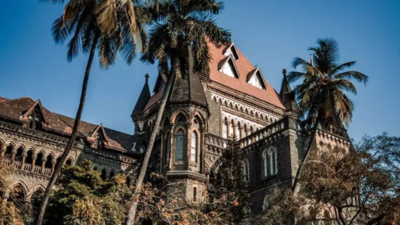- News
- City News
- navi mumbai News
- Bombay HC junks circular on post facto CRZ nod for projects
Trending
Bombay HC junks circular on post facto CRZ nod for projects
The Bombay High Court has overturned a 2021 circular issued by the Centre that allowed post facto approval for projects without coastal regulation zone (CRZ) clearance. The court declared these approvals legally impermissible and emphasized that executive instructions cannot replace statutory rules. This decision impacts ongoing CRZ clearance applications, including those from Nagaland.

The Bombay High Court has overturned a 2021 administrative circular from the Centre that allowed post facto approval for projects without coastal regulation zone (CRZ) clearance.
The high court division bench of Chief Justice Devendra Kumar Upadhyaya and Justice Amit Borka held that the Feb 19, 2021 notification is "clearly non-statutory in nature" and "post facto CRZ clearance is legally not permissible".

In another matter involving the grant of post facto environment clearance, the Supreme Court had issued a stay on another circular of the environment ministry in Jan this year and hence no project had been granted post facto environmental clearance, said a lawyer arguing the matter.
Executive instruction can’t supplant rules, says HC
Bombay high court has set aside a 2021 circular from Centre allowing post facto clearance of projects that had not obtained environmental nod under CRZ notificcations.
After an exhaustive hearing, where the National Real Estate Development Council (NAREDCO) and the state of Nagaland had intervened to oppose the PIL by NGO Vanashakti, the HC held that, as propounded by Supreme Court, “it is more than clear that any executive instruction can only supplement the rules and if such executive instruction tends to supplant the rules, the same cannot be permitted to be sus tained in the eyes of law”.
The petitioners had argued in the SC, while presenting a plea against mining by lease holders, that environment impact assessment for a project can take place only before commencement of activity and not after. It originates from the precautionary principle which is the cornerstone of environmental jurisprudence, they contended.
The state of Nagaland and others had intervened in the Bombay HC to argue the validity of the circular issued by the ministry. The HC said the applications made by the state of Nagaland and others for CRZ clearance for their projects should now be considered and decided by the necessary authority on their own merit, expeditiously.
Vanashakti had filed the public interest litigation last year, saying the circular was issued sans any legal powers. The HC said the issues before it were whether the circular was in contravention of the provisions of the 2019 CRZ notification, which has legal force.
The circular had prescribed a procedure to deal with violations arising from not obtaining prior CRZ clearance for projects, as mandated by earlier mandatory notifications, and allowed developers to seek, in CRZ areas, a post facto clearance. The circular lacks the mandate of law and was a mere executive circular containing instructions, the HC said.
End of Article
FOLLOW US ON SOCIAL MEDIA











